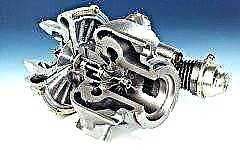

The content of the article:
- European view of the problem
- Staff shortage
- Supply and demand
- First-hand information
In Europe, there is a situation of a total shortage of drivers. Eastern European transport firms are actively deploying advertising campaigns for the recruitment of truckers from other countries. They offer high wages and good working conditions.
The profession of a truck driver is dying out in Europe. Europeans do not want to be out of the house for a month. But residents of the countries of the former CIS are quickly filling the vacated labor niche:
- salaries are higher than at home;
- rest time is strictly regulated, all nuances are checked by the tachograph;
- payments are controlled by a completed contract.
European view of the problem

A report by the French CNR (National Road Commission), prepared for the EU in 2018, has generated intense discussion in the press and among Europeans. Most are inclined to believe that there is a social dumping used by eastern freight carriers. This was directly announced by the head of the Federal Union of Freight Transport and Logistics of the European Parliament.
The salary scale is as follows:
The richest drivers live in the kingdom Luxembourg... Their average salary is almost 44 thousand euros per year.
Italian truckers receive 40 thousand euros "with a penny", Belgians - a little less - 39,600 euros.
French and Germans are also in the same price - the average salary "floats" from 37 to 38.5 thousand euros. Moreover, among the Germans there is a strong stratification between the incomes of West German Germans and their less paid East German colleagues.
Spanish drivers agree to work for 30 thousand euros.
"Middle" - Slovenia and Portugalwhere truckers are forced to settle for 20-22 thousand.
Czech Republic, Slovakia and Poland (which actively invites drivers from the CIS countries to work) can offer a salary of 17-19 thousand.
Cannot boast against a prosperous Western European background Hungary, Lithuania and Romania, whose salaries are close to the minimum, amounting to 19 thousand euros.
Outsiders were considered Bulgarians, whose average salary is barely close to 15 thousand euros.
In Western European countries, it is accepted that employers pay for the social component on their own, and meanwhile, it makes up the "lion's share" of the total amount of income, which is not taken into account in average wages.
Eastern European companies prefer to squeeze social services to the maximum. The social package is understood as all kinds of discounts and insurance. At the same time, the "guaranteed" salary of drivers in Eastern Europe ranges from 3.5 thousand (Bulgaria) to 8.5 (Slovenia). The rest of the amount is formed by other methods of remuneration, which can vary in any direction.
In Western Europe, on the contrary, most of the wages are exactly "guaranteed", and only a small increase is formed due to bonuses, overtime, etc.
For example, the bare "annual" salary in Luxembourg is 39.7 thousand, in West Germany - 32, in East - 22.5 thousand.
But even despite such price differences, it should be noted that the wages of drivers in Eastern Europe are still much higher than not only the minimum wage in the country, but also the average salary too.
The Pan-European Bureau of Statistics Eurostat divides the member states of the European Union into three categories according to the size of the minimum national wage:
- The first group includes countries where the minimum wage does not exceed 500 euros per month. These are Bulgaria (minimum 235 euros per month), Hungary, Latvia, Lithuania, Poland (maximum - 473 euros), Romania, Slovakia, Croatia, Czech Republic, Estonia.
- The second group of countries with an income of the population from 500 to 1000 euros per month. Residents of Portugal received the minimum (650 euros), the maximum - the Spaniards (826 euros). Other few members of the group: Greece, Slovenia, Malta.
- The third group of wealthy European countries assumed salaries above 1000 euros per month. The smallest minimum subsistence wage was observed among residents in the UK - 1,400 euros, and the highest - among Luxembourgers (2,000 euros). On the rest of the price scale, France, united Germany, Belgium, the Netherlands, and Ireland were “smeared”.
Truckers' salaries are based on the realities of the employing country. At the same time, Eurostat states that from 2008 to 2017, wages in Bulgaria almost doubled (an increase of 109%), among the former Soviet Baltic republics, the increase is not so obvious, ranging from 64% in Lithuania to 69% in Estonia.
Staff shortage

Despite the fact that many of the truckers in Ukraine and Belarus have long been working in the vastness of Europe, there is a shortage of workers. The Polish Ministry of Transport complains that it would gladly welcome 100,000 truck drivers into the country.
Moreover, the number of vacancies is growing steadily. If the trend does not change, and the demand increases, then in ten years, truck drivers will need 300 thousand.
The report "The market for truckers in Poland" is more categorical. In the country, jobs are distributed among 500 thousand drivers, with a quarter of carriers complaining that the staff is not fully staffed - vacancies always remain open.
More than 11 thousand drivers came to Lithuania to work from Belarus and Ukraine in a year. The number of foreign steering and wheel employees in the small Baltic republic is growing rapidly.
In small transport companies, the percentage of visiting Ukrainians and Belarusians reaches 80%, while a couple of years ago only citizens of Lithuania applied for the position of a driver.
Supply and demand

European entrepreneurs, represented mainly by citizens of Poland and Lithuania, are developing a vigorous activity to attract employees from the former CIS countries, including Russia. They are tempted with a salary ranging from 1,300 to 2,000 euros (which by Russian standards ranges from 80 to 125 thousand rubles).
Rare good offers reach 150 thousand Russian rubles, a salary of 60 thousand rubles is considered low, and it is simply impossible to find an employee for it.
- Meanwhile, in Russia, the average salary of a truck driver is only 36 thousand. In Moscow, it fluctuates between 64-70 thousand, in St. Petersburg it is 73 thousand. Lipetsk drivers involved in long-distance transportation earn a little more than 40 thousand rubles.
- Belarusians in Minsk can count on 30-44 thousand rubles, while the regions offer only 13 thousand.
- In Ukraine, prices fluctuate very much - from 11 to 25 thousand of the average salary is found everywhere, in Kiev - almost twice as much.
It is clear that the proposals of European employers are of interest to the drivers of heavy vehicles quite strongly. Moreover, the receiving party undertakes the execution of all documents, offering to officially find a job under the contract and promising full workload along the routes within Western Europe.
The proposed schedule with different intervals of work and rest by week - 4 through 1, 6 through 2, 8 through 3. The average salary with such a workload is 1,500 euros (93,000 rubles).
The salary depends on the route, schedule, flight duration. The more you rest, the less you get.
Usually the payment is formed on the basis of the base salary + daily allowance, depending on the direction of the routes. They offer a base rate of 450 euros per month + business travel 45-50 euros (with weekends and holidays) + a premium of 50 euros.
Unscrupulous companies offer to work on payment depending on the mileage or the price of freight. In this case, the driver does not know how much he will be paid and how much he will be thrown.
It is "estimated" to carry goods from Eastern Europe to Russia from 1000 to 1300 euros per month.Flights to the west of Europe are more expensive - here you can already earn from 1,500 to 1,800 euros, but it is more difficult to get a job in this direction.
Most often, they hire drivers who want to deliver goods across Europe for three weeks, and then rest for a week. For Poland, the salary of a truck driver at 50-60 euros / day is recognized as very good.
Drivers from Russia and the CIS countries are satisfied with this work. The roads in Europe are good, the infrastructure is developed and comfortable. Well-equipped parking lots offer full service, including shower, toilet, delicious food, internet.
Among the disadvantages of working on the roads of Western Europe are called immigrants, who abundantly flooded some regions of the Old World and actively dictate their own rules of conduct, criminalizing the atmosphere in the once prosperous, quiet cities.
There are no immigrants in Lithuania and Poland, so there is no “eastern crime” there.
First-hand information

Truckers do not mind sharing information on forums about how they work in the vastness of Europe.
Anton worked as a truck driver in Europe for three years, under a contract with the same Polish company. The initial rate was 42 euros per day, plus about 30,000 rubles a monthly supplement. The rate was fixed, regardless of whether the driver was on the road or at home.
After a year of operation, the rate increased by 2 euros, and a year later it was already 50 euros. If there is a partner in the car, the rate immediately increases by 10 euros.
Despite the good possible income, do not flatter yourself. This money does not include overnight stays in parking lots, meals, fines. You have to pay for traffic violations out of your own pocket. If he was inattentive, violated - the fines can be up to $ 200 per flight.
Alexander works for another Polish company. For those truckers who come to Europe for the first time, the internship salary is 40 euros / day.
Truckers with little driving experience in Europe can already earn up to 45 euros / day. Those who have worked for more than a year receive an increase of up to 50 euros / day, and people who have traveled on the roads of Europe for more than two years receive 58 euros.
Nikolay from Belarus has been working in Lithuania for six months. Travels to Latvia, Germany, Poland. I did an internship for a month, there were no problems, so I was hired.
Long-haul flights are considered to be Russia and Western Europe, they are estimated per day at 3150 rubles, and trips from Lithuania / Latvia to Moscow can still be counted based on the price of 8 rubles per kilometer. The amount is obtained "net", without taxes. When I skated 12,000 kilometers in 36 days of work, 110,000 rubles turned out to be "dirty". About 70 thousand remained "clean".
They offered to work on a new car, the roads are a fairy tale, the only thing is that without knowing the English language you will not run away much here, and you will remain at the "Polish-Lithuanian" level.
First, you work from scratch, gain experience, then look for employers from Western Europe. It is imperative to know the language in order to speak and understand what is needed when unloading or at customs.
In Europe, work is not bad, Sunday is any weekend - it is forbidden to drive in trucks, so as not to interfere with the rest of others. The salary is gradually growing, I (as he writes) now get up to 60 euros / day. There are lucky ones who manage to take orders of 80, but this is rare.
Denis from Russia - a trucker with 16 years of experience and extensive experience in European travel. He started working with a small company in Latvia, now he works for a large European holding.
In his opinion, the roads in Latvia and Lithuania are reminiscent of Russian ones, while Estonia is a little better. The best roads are built in Holland, and the worst are found in Belgium and Germany. About the concrete blocks of Germany, they generally joke that the Russians were still building them when they went to Berlin.
A standard flight to Europe takes 1-1.5 weeks, but it also happens that you can travel around the countries for three to four months if the orders are successfully turned up.
In the Pskov region, international drivers estimate their salary at no less than 60 thousand rubles, because earnings are offered up to one and a half to two thousand euros. In Europe, the working day is strictly regulated by the tachograph - plowed for 9 hours, everything is rest.
Yaroslav, who has been working in Europe for a long time, considers a salary of 2,000 euros to be quite normal. It also consists of bonuses (drove 100 km on 36.5 liters of gasoline - get 62 euros of bonuses weekly, went beyond the limit - remained without a bonus).
The driver does not repair the car, does not skid the wheels - this is the mechanic's bread.
Salary in Europe (except Germany) is paid weekly. Upon admission to work, 150 euros are given for unforeseen expenses, which are deducted from the salary upon dismissal. Germans and Belgians work with an overnight stay at home for 2200 euros per month and for 2800 - if they get home only on weekends.
The possibility of a decent income encourages drivers from Russia and the CIS countries to look for work in Europe. Having gained experience, having learned the "spoken" English and German languages, an opportunity opens up to move to a higher-paying job from Polish and Lithuanian firms in companies from England, Holland and Germany.











